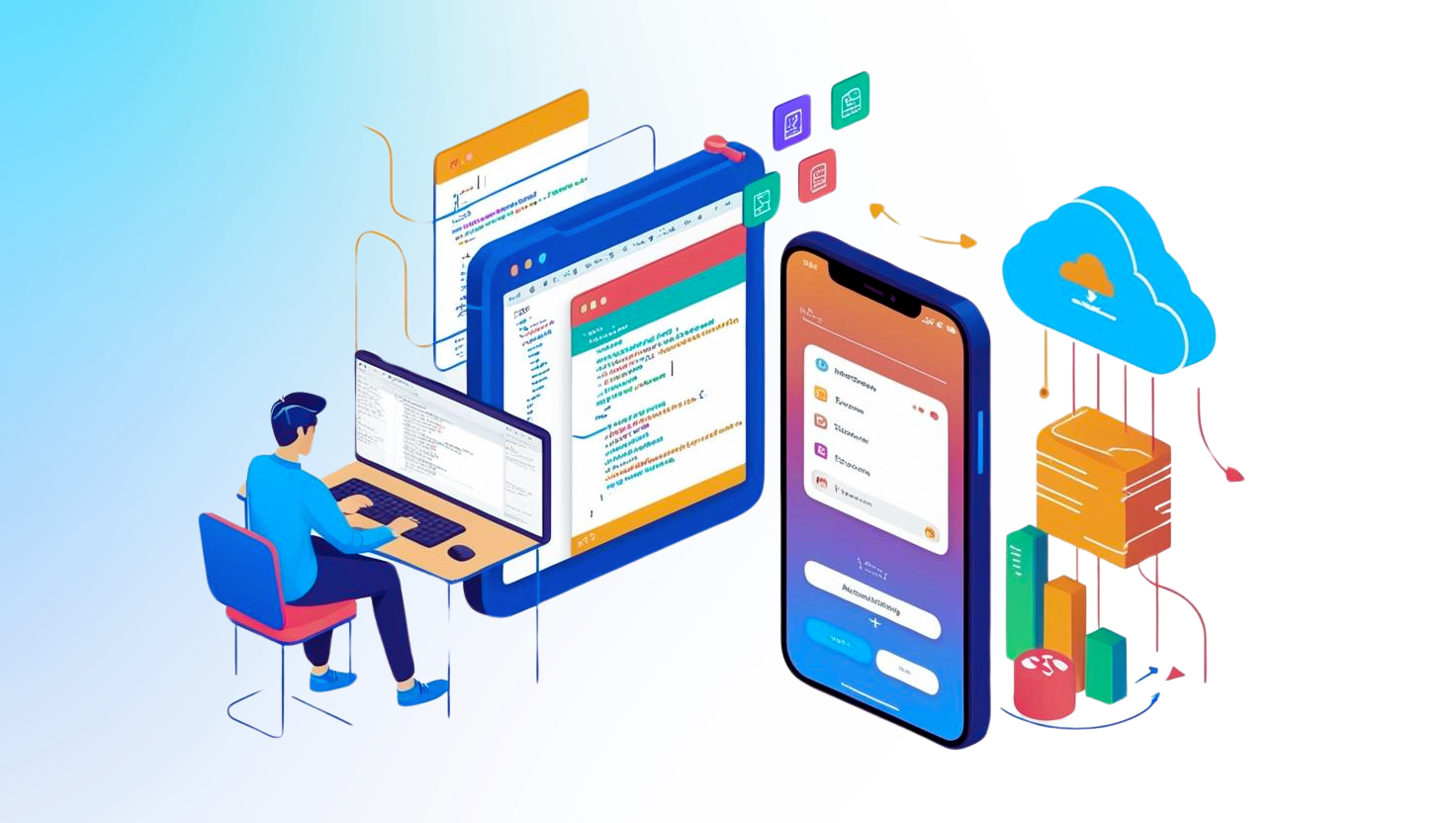
12 Nov Mobile Application Development: The Key to Unlocking Business Success
In today’s digital age, smartphones have become an essential part of our daily lives. Whether it’s for work, entertainment, or staying connected with friends and family, mobile devices are always within arm’s reach. This widespread usage has made Mobile Application Development a must-have business strategy for companies across all industries.
The importance of having a mobile app cannot be overstated—whether your business is focused on B2B (business-to-business) or B2C (business-to-consumer) markets, a well-designed mobile app can enhance your brand’s presence, improve customer engagement, and streamline your operations. Let’s explore the key reasons why mobile application development is critical for businesses today.
Why Mobile Apps Matter for Businesses
- Increased Customer Engagement A mobile app allows businesses to engage with their customers directly on their phones, providing easy access to products, services, and information. Whether it’s through push notifications, personalized offers, or customer support features, mobile apps provide a powerful tool to engage customers in a more intimate and immediate way than websites alone.
- Convenience and Accessibility The convenience of a mobile app means that customers can access your business at any time, from anywhere. This instant access to your brand can significantly enhance customer satisfaction and loyalty. Whether it’s purchasing products, checking order status, or contacting support, an app makes it easier for customers to interact with your business seamlessly.
- Enhanced Brand Visibility Mobile apps create another touchpoint for customers to interact with your business, which increases your brand’s visibility. Having your logo and brand on your customers’ home screens means they’re constantly reminded of your business, boosting brand recognition and fostering customer loyalty.
- Improved Customer Experience Mobile apps offer a smoother, more personalized experience than traditional websites. With features like tailored content, location-based services, and easy navigation, mobile apps allow businesses to offer a more streamlined, user-friendly experience. This leads to higher customer satisfaction, which translates to repeat business and positive word-of-mouth.
Benefits of Mobile Application Development for Businesses
- Boosting Sales and Revenue A mobile app can be a powerful tool for driving sales, whether through in-app purchases, loyalty programs, or exclusive deals for mobile users. By providing a convenient way to shop or access services, businesses can increase sales volume and encourage more frequent transactions.
- Real-Time Communication and Updates Mobile apps provide businesses with the ability to send real-time notifications to customers. Whether it’s about new product launches, special promotions, or important updates, apps allow businesses to keep their customers informed and engaged, improving customer retention and satisfaction.
- Data Collection and Insights Mobile apps enable businesses to gather valuable data on customer preferences, behaviors, and interactions. This data can be used to improve customer targeting, personalize marketing efforts, and fine-tune business strategies. Analyzing how customers use the app allows companies to make data-driven decisions that enhance user experience and operational efficiency.
The Development Process: Creating a Mobile App
Building a mobile app involves several key steps that transform an idea into a fully functional application:
- Planning and Strategy The first step in mobile app development is understanding the business goals and objectives. Whether the app is designed to improve customer engagement, drive sales, or streamline business operations, it’s important to define the app’s purpose and target audience.
- Design and User Experience The design of a mobile app plays a crucial role in its success. A well-designed app should be user-friendly, intuitive, and visually appealing. The goal is to create an experience that customers find easy to navigate and enjoy using. This stage also includes creating wireframes, user interfaces (UI), and user experiences (UX).
- Development and Testing Once the design is approved, the development phase begins. The app is built using coding languages and frameworks that best suit the project’s needs. After development, extensive testing is conducted to ensure that the app functions correctly across various devices and platforms, providing a seamless experience for all users.
- Launch and Marketing After thorough testing, the app is ready for launch. This includes submitting the app to app stores (iOS App Store, Google Play), as well as marketing the app to your audience. Successful marketing strategies can drive downloads and increase visibility, setting the stage for the app’s success.
- Maintenance and Updates The work doesn’t stop after launch. Regular maintenance and updates are essential to keep the app functional, secure, and compatible with new mobile devices and operating systems. Adding new features and improvements based on user feedback helps keep the app relevant and engaging over time.
Conclusion: The Future of Mobile Apps
Mobile applications have revolutionized the way businesses interact with customers. They provide businesses with new opportunities to engage, inform, and connect with users in real-time. As mobile technology continues to evolve, the potential for mobile apps to enhance business operations and customer experiences will only grow.
For businesses looking to stay competitive and thrive in the mobile-first world, developing a mobile app should be a top priority. At PT KDN, we specialize in creating custom mobile applications that help businesses unlock new growth opportunities, boost customer satisfaction, and streamline operations. Whether you’re a small startup or an established enterprise, a well-designed mobile app can make a significant impact on your business success.
Let PT KDN help you create the next great mobile experience for your customers, driving engagement, loyalty, and business growth in the digital age.


Sorry, the comment form is closed at this time.